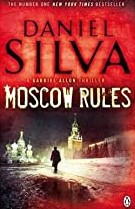
Predictable we may be, but Russian in Fiction couldn’t resist reviewing in succession two books with identical titles.
Daniel Silva’s Moscow Rules (2008) is a very different sort of thriller from Robert Moss’s Moscow Rules (1985), in terms of both aspects of Russia in Fiction’s reviewing template.
Russia in Fiction asks two things about the books we review. What is the novel like? And how does it portray Russia? For the former, Daniel Silva is a doyen of the novel-a-year, same central character, same formula series. For the latter, when Silva deals with Russia, he tends to the straight down the line, big bad Russia approach; not uncommon at all amongst Western thriller writers, and a useful marker of how Russia has been popularly perceived at particular points of time.
And if this brief opening summary makes it sound like Russia in Fiction doesn’t think much of Daniel Silva’s writing, then we want to correct that misperception immediately.
Daniel Silva’s Gabriel Allon novels —of which there are so far 21— represent fine examples of their type. They have provided Russia in Fiction with escapist vacation reading for many years. Silva talks in terms of the ‘writing year’, and since the beginning of this century has never failed to deliver a new Gabriel Allon novel in time for the summer holidays. They are not all Russia-in-Fiction territory, but Russia is —along with the Vatican, Switzerland, the European far-right, and Arab-Israeli conflicts— a recurring theme. The novels are formulaic, but it’s a good formula, and occasionally a surprise is sprung.
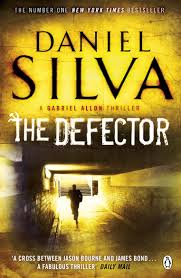
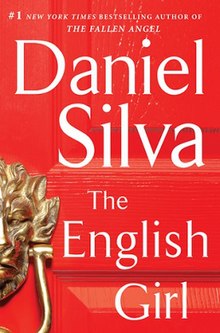
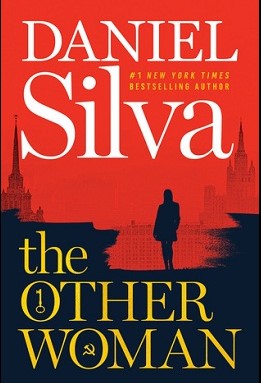
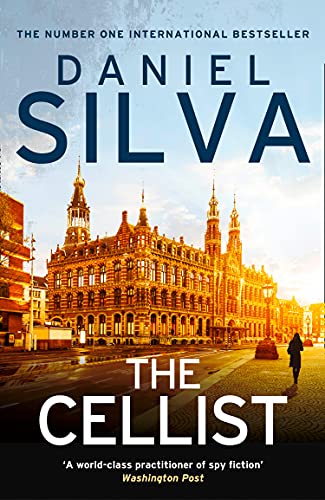
Silva’s fictional hero, Gabriel Allon, is an assassin turned renowned agent of the Israeli security service. He is also a celebrated restorer of Old Masters, and a gifted painter himself. The plots of the novels invariably involve making use of his artistic talent. They feature a regular group of recurring characters, and the fictional world created carries over from novel to novel. In much the same way as Tom Clancy’s lead character Jack Ryan moved over the years from CIA analyst to President of the United States, and the notion of the ‘Ryan-verse’ was developed, so Gabriel Allon has developed from assassin to, in the most recent novels, being the chief of his country’s security services.
In the way they are set up, Silva’s novels put us in mind of the 1980s American TV series The A-Team. The reader knows what the reader will get. There is a set-up in the shape of a threat to be dealt with. The team gets together. An elaborate plan is devised and meticulously prepared. The plan is carried out. For the most part, these are escapist, easy-read novels. Except for a couple of things.
First, they are usually followed by an ‘Author’s Note’ that seeks to give a serious account of what Daniel Silva sees as the reality behind the story. We would rather these Author’s Notes weren’t there and the story was left to stand for what it is. Once you get such op-ed style pieces added on, they are easy to disagree with and sit uneasily with the diverting fiction with which they are paired.
Which leads us on to the second point. If you are the sort of person whose politics might set you against enjoying novels about an heroic Israeli assassin whose world is painted in rather straightforward good vs. bad terms, then may be the Gabriel Allon series is not for you. Here at Russia in Fiction, we are as fine as many a watcher of the Bond movies with differentiating between our real-world opinions, and our enjoyment of an entertainingly unrealistic thriller.
In Moscow Rules, the plot is about undermining a Kremlin-connected, Russian arms dealer by the name of Ivan Kharkov, who is selling a consignment of weapons to be used by anti-Israeli terrorists.
Moscow Rules is a classic Daniel Silva novel, bringing together many familiar elements. There is a memorable opening set-up, which sees the murder of a Russian journalist by Russian security operatives in the Swiss ski resort of Courchevel. Meanwhile, Gabriel Allon is restoring a painting, holed up in the Italian countryside with his beautiful new bride, Chiara. He is summoned to Rome to meet another Russian journalist, who is assassinated and dies in his arms in the Vatican. Again, the Russian security services are responsible. In investigating what lies behind these deaths, Allon and his team discover a putative arms deal contrary to Israel’s interests. They concoct an elaborate plot to undermine arms dealer Ivan Kharkov, involving betrayal by his wife Elena, who has concerns about her husband’s nefarious activities. They draw her in by selling her and her husband an apparently valuable Impressionist painting, forged by Allon.
Did we mention it was all a bit escapist and contrived? Summing up a Daniel Silva plot in a paragraph does not quite do justice to the sparky and entertaining style of his writing, and to the comfort-reading aspect that no doubt many of his regular readers find in returning to familiar and well-drawn characters and settings.
So that is the ‘what is the book like?’ aspect of our review. Now to the ‘how is Russia portrayed’?
In short, most of the Russian characters are either brave dissidents standing against the extant Russian regime, or are venal participants in that regime. This is apparent from the off.
The first chapter is a bit like those opening scenes in Bond movies — stylishly entertaining and self-contained, serving as a thematic set-up for what follows, rather than diving straight into the plot proper.
In Moscow Rules, chapter one portrays Courchevel as a Swiss town under occupation from boorish and extravagant ‘new Russians’ during the New Year holiday. Only the fictional Hôtel Grand stands against the invasion; a luxurious 21st century equivalent of that famous small Gaulish village in Armorica, if one can imagine Asterix and the Oligarchs. At the sedate and old-fashioned Hôtel Grand, the management deliberately tries to not allow any Russian guests in, and when one slips through, he is given the appalling service treatment to deter any return visit.
Much of Moscow Rules is set in Russia; partly in St Petersburg, mainly in Moscow. All the standard tropes of big bad Russia, at least as emerging in 2008, are set out. The action takes place against the background of a presidential election campaign; though Putin is not named and the notion that it is him is blurred a little by the assertion that
He was scheduled to face the Russian ‘electorate’, such that it was, for the fourth time.
Moscow rules, p. 88
In the real Russia, Vladimir Putin served two terms between 2000 and 2008, before abiding by the constitutional bar from standing for a third successive term, in favour of serving as prime minister to his proxy president, Dmitrii Medvedev, between 2008 and 2012.

And instead of the real world United Russia party competing in the elections, Moscow Rules has the Russian Unity Party.
A key Russian character is a female journalist, seemingly modelled to some extent on Anna Politkovskaya, who wrote for Novaya gazeta and was shot dead in her apartment block in Moscow in 2006.

In Moscow Rules, the journalist Olga writes for the fictional —and grammatically mis-named— Moskovsky Gazeta, and is shot at by would-be assassins in her apartment block. But happily Gabriel Allon is on hand and kills them before they can harm her.
By the time the same fictional newspaper re-appears in The Cellist (2021), it has the grammatically correct title, Moskovskaya Gazeta. (Pedantry. It’s what keeps Russia in Fiction strong.)
Olga accompanies Gabriel Allon to the Novodevichy cemetery, a fairly common meeting place in Russia-in-fiction novels, as it allows for conversations away from listening ears, easy observation of surveillance, and sweeping grave-based discourses on Russian history. In Moscow Rules, this is where Olga helpfully sums up for readers what has gone on in Russia to bring the current regime to power.
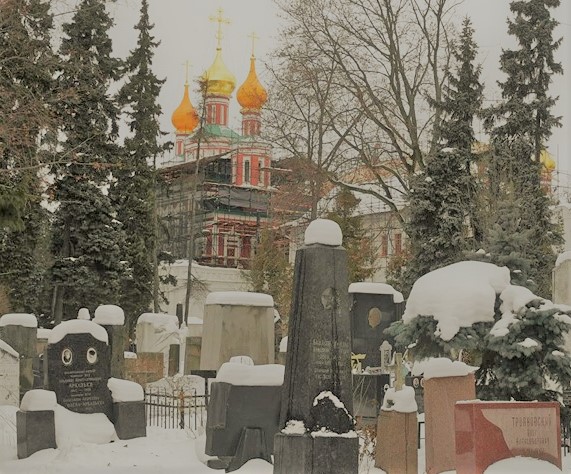
‘To understand Russia today, you must understand the trauma of the nineties. Everything we had, everything we had been told, was swept away. We went from superpower to basket case overnight. Our people lost their life’s [sic] savings, not just once, but over and over again. Russians are a paternalistic people. They believe in the Orthodox Church, the State, the Tsar. They associate democracy with chaos. Our president and the siloviki understand this. They use words like “managed democracy” and “State capitalism,” but they’re just euphemisms for something more sinister: fascism.’
Moscow rules, p. 98
And there you have it. The standard mix of Putin era slogans (‘managed democracy’) with retro-Soviet references (‘state capitalism’), bundled up to pretend that Russia in 2008 was fascist. Though of course, this is the view from the mouth of a fictional opposition journalist, and we must not slip into the easy idea that it is necessarily the author’s view.
Nonetheless, there is a lot like this. Opponents of Russia’s ruling regime are put in psychiatric hospitals, as if it were the Brezhnev years. Allon himself is tortured in the Lubyanka.
So far, so normal, for many a Western thriller portrayal of Russia today. Though it is worth noting that such depictions were less common in 2008 than they are now.
But Daniel Silva’s writing lifts Moscow Rules above the standard. He is an entertaining writer of memorable scenes, with a light touch even within the brutality, and the ability to draw character types that carries echoes of Ian Fleming’s writing.
And, without giving away the ending, the novel’s denouement allows room for nuance in the set of apparently villainous Russian figures that he creates.